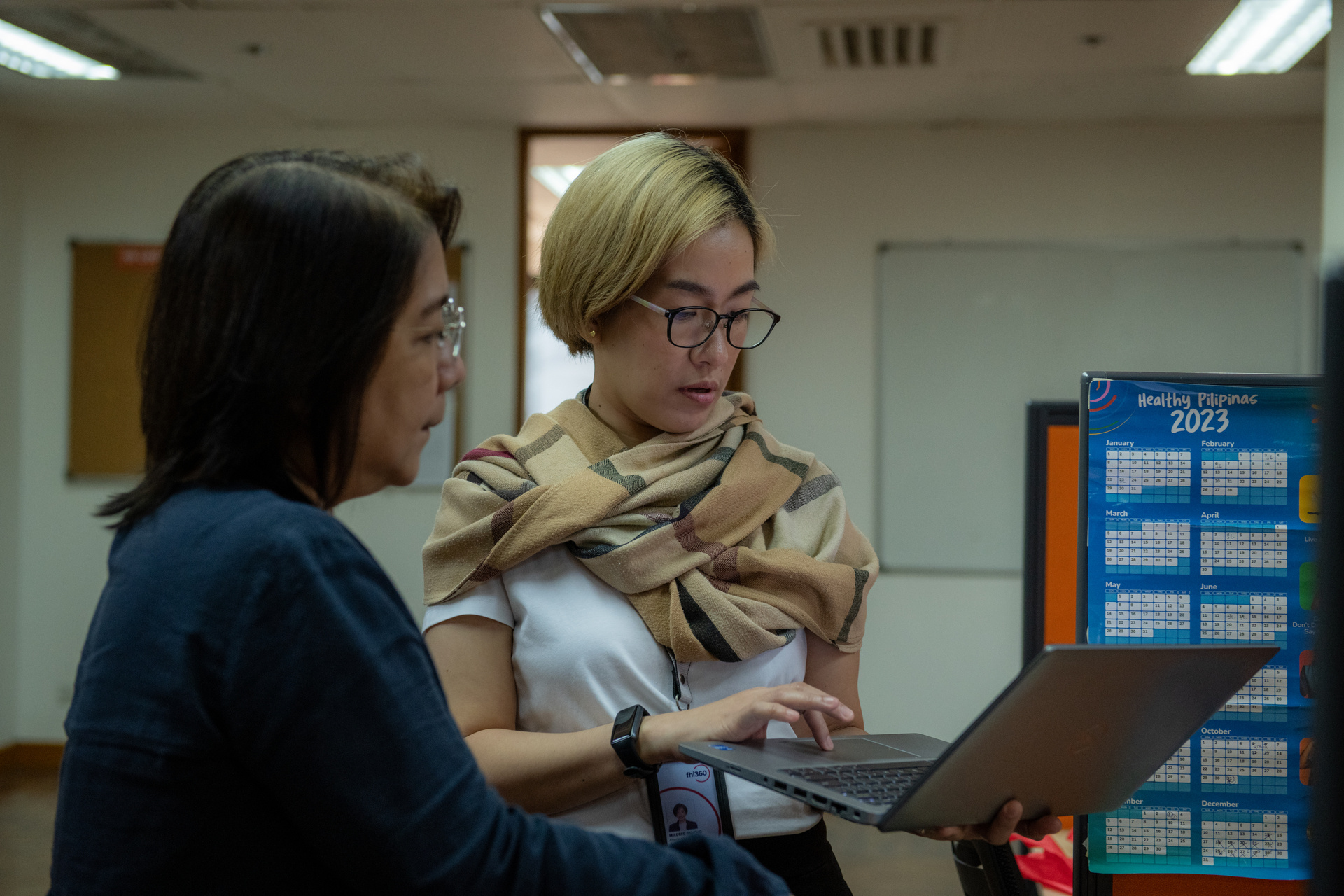Mildred Fernando Pancho was in her last semester of college in the Philippines when she started experiencing flu-like symptoms and a chronic cough. At the time, her father was battling tuberculosis (TB) and he advised her to see a doctor right away. Mildred found out that she also had TB – an infectious disease that most often affects the lungs and is spread through the air when those infected with the bacteria (mycobacterium tuberculosis) cough, sneeze or spit.
Mildred began treatment for TB, but none of her physicians did a culture test to see if the TB-causing bacteria in her lungs were resistant to the antibiotics she was given. She took the daily medicines as prescribed, but did not get better. Novel rapid diagnostic tests, which can detect drug resistance within hours, were not yet available at the time she was diagnosed.
“During the first five years, I was beginning to lose hope,” says Mildred. “I was never declared cured by the doctor. I just continued taking the drugs.”
Results later showed that her TB was resistant to all first-line TB drugs and even some of the second-line treatments. When there were no more options available, she was referred to the Tropical Disease Foundation in Manila where she underwent 18 months of treatment. Despite the lengthy treatment, she later relapsed.
A decade passed before she was finally free of multidrug-resistant TB, but it came with huge costs. When drug resistance occurs, the treatment requires newer medicines that often have severe side-effects. For Mildred, the drugs contributed to profound hearing loss requiring her to use hearing aids to help with daily conversation.
Living through the pain of stigma and discrimination

Mildred helps raise awareness about AMR by sharing the story of her 10-year treatment and the struggles that she and her family endured.
People with TB and survivors of TB often face stigma, discrimination and financial hardship. After Mildred was diagnosed she was unemployed for seven years and therefore could not contribute to the cost of her private medical care. Her eldest sister struggled financially to pay for Mildred’s medical care, transportation and housing, often resorting to using credit cards to make ends meet.
Although she eventually received free treatment at the Tropical Disease Foundation, there were still significant expenses to contend with. “I am thankful that I received free treatment because the medicines are free, the consultations with doctors are free, and the laboratory tests are free,” she explains. “But the out-of-pocket expenses, like daily transportation to doctors’ appointments, we had to shoulder.”
Once she was cured Mildred continued to look for work but could never pass the initial chest x-ray TB screening that is required by many employers in the Philippines, and when she applied to private organizations, she was not hired due to the social stigma associated with being someone who once had TB.
“I was hoping that the public was ready for TB survivors like us,” she shares. “I never denied that I had TB, that I received treatment, but I guess they are not yet ready. It’s been more than 10 years since I was cured of TB, but the pain is still there. The stigma and the discrimination are there.”
Antimicrobial resistance, including multidrug-resistant TB, is a public health crisis
In the World Health Organization (WHO) Western Pacific Region, an estimated 76 000 people are living with multidrug-resistant TB; however, only one in three of them are currently on treatment. While most people living with TB can be cured by strictly following a six-month drug regimen that should be provided with medical support and supervision, incorrect use of antimicrobial drugs and treatment interruptions can cause drug resistance. In some countries, it is becoming increasingly difficult to treat multi-drug-resistant TB. Treatment options are limited and recommended medicines are expensive and not always available.
Beyond drug-resistant TB, antimicrobial resistance (AMR) in pathogens that cause other diseases is also on the rise. AMR occurs when bacteria, viruses, fungi and parasites no longer respond to antimicrobial medicines, like antibiotics – making infections more difficult or impossible to treat. An estimated 5.2 million people in the Western Pacific Region are expected to die due to drug-resistant bacterial infections between 2020 and 2030. Forecasts predict that AMR will cost the Western Pacific Region US$ 148 billion over that decade.
To combat AMR, WHO is working with countries in the Western Pacific to implement the Framework for Accelerating Action to Fight Antimicrobial Resistance in the Western Pacific Region. The Framework calls for countries to take a series of actions with support from WHO. This includes developing and implementing AMR action plans, strengthening AMR surveillance systems to inform policy and clinical practice, and enhancing antimicrobial stewardship to further reduce the overuse and misuse of antibiotics and other antimicrobial medicines.
Under the Western Pacific Regional Framework to End TB 2021–2030, WHO is supporting countries to strengthen essential functions for TB prevention and treatment, including ensuring equitable, people-centred TB services through primary health care, such as providing screening, early diagnosis with rapid tests, and quality care with state-of-the-art technologies for vulnerable populations. This will help ensure that people like Mildred receive the proper care and support they need closer to where they live.
Raising awareness about antimicrobial resistance
Now a wife and mother of two young children, Mildred is grateful for every year she remains TB free and works to raise awareness about AMR so that antibiotics continue to work for her children and future generations.
“My greatest fear is for me to again get a drug-resistant disease that can lead to me losing my life. And I could not imagine my kids also getting AMR. Now, I’m treating every year of my life as a bonus. Because when I had my relapse, I never thought that I would survive the disease.”
In her advice to others, Mildred says, “Do not take drugs that are not actually prescribed by medical professionals. Do not self-medicate – that might cause AMR. Go and seek professional advice.”




